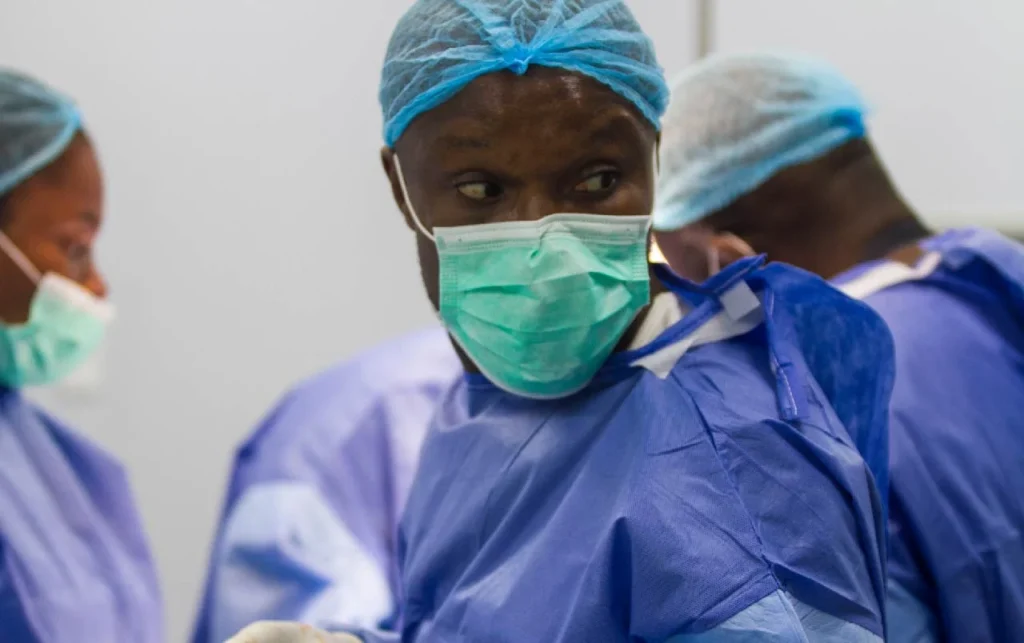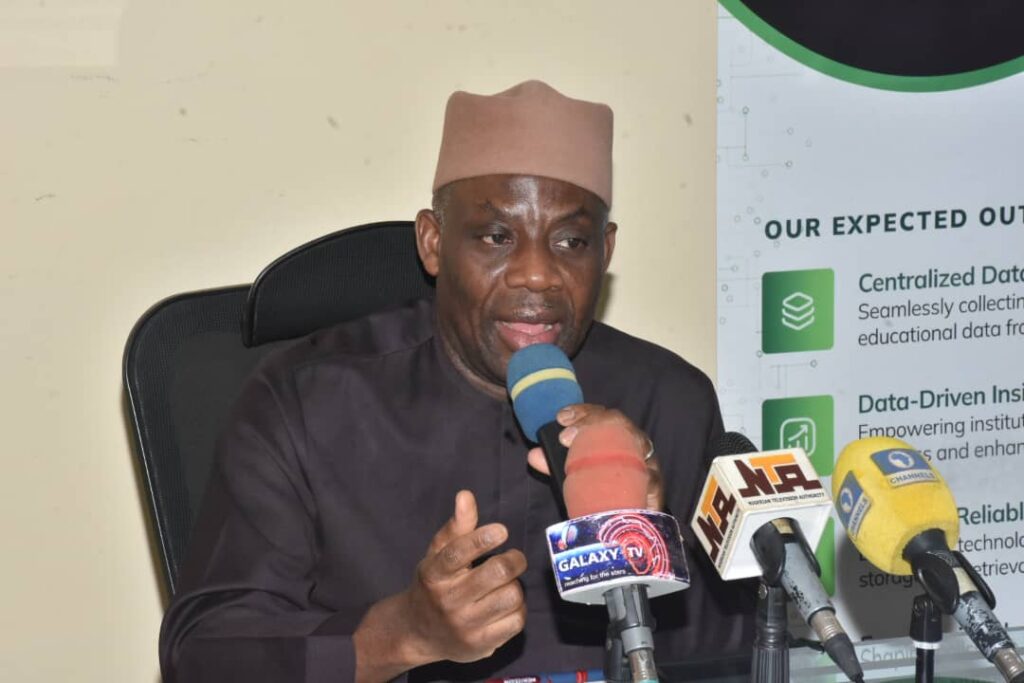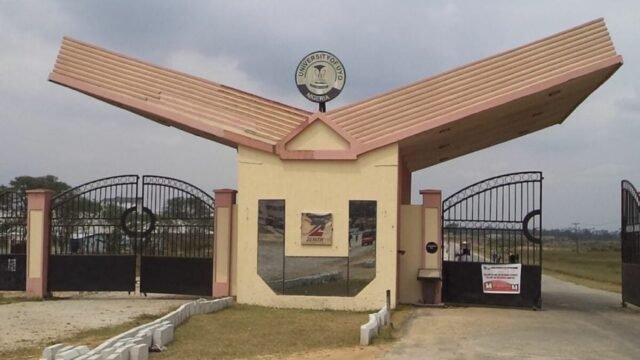Medical lecturers at the University of Uyo (UNIUYO), affiliated with the Teaching Hospital, have launched an indefinite strike starting at midnight on 26 June 2025, expressing strong opposition to the Vice-Chancellor appointment process. Led by the Medical and Dental Consultants Association of Nigeria (MDCAN), the clinical educators allege that the recent advert issued by the university deliberately excludes medical professionals—specifically those with fellowships—from eligibility, favouring only candidates with PhDs.
The strike announcement followed a resolution passed during their Extraordinary General Meeting (EGM), which convened from 20–25 June. The group’s statement—shared on Sunday—explicitly declared a “total” walkout affecting all clinical academic functions, including lectures, seminars, clinical rounds, practical sessions, symposia, supervision, and even grading tests and exams. This means a full halt to medical education and allied training activities at UNIUYO Teaching Hospital.
Table of Contents
What Triggered the Walkout?
At the heart of the industrial action is a vacancy advert for the UNIUYO Vice-Chancellor role. The advert, issued in May, lists only PhD holders as eligible, thereby disqualifying candidates with terminal postgraduate medical fellowships—a requirement commonly held by clinical professors. MDCAN contends this move intentionally sidelines qualified medical academics.
In correspondence dated 25 June 2025, MDCAN-University of Uyo Teaching Hospital chapter formally notified the Pro-Chancellor, Dr. Muiz Banire (SAN), of their service withdrawal. Addressed to several federal entities—including the Ministers of Education, Health, and the Permanent Secretary of Education—it described the criteria as discriminatory.
The association rejected a dismissive response attributed to the Pro-Chancellor: “If anybody feels it is ambiguous, let him go back to school. It is clear enough… whoever is desirous should go and apply.” MDCAN labelled the tone “insulting,” especially towards highly qualified clinicians.
“We are understandably mortified at the presumption that we… at the highest level of our professional practice, could be labelled as unschooled,” the group stated. They noted that the rhetoric was unbecoming of a Senior Advocate of Nigeria.

MDCAN’s Demands for Resolution
To call off the strike, MDCAN has set forth clear conditions:
- Publication of a Rejoinder
They demand a public correction in at least two national dailies clarifying that a Postgraduate Medical Fellowship is considered equivalent to a PhD for professorial eligibility in clinical medicine. - Formal University Council Entry
This clarification must be officially recorded in the proceedings of the University’s Governing Council, ensuring long-term institutional acknowledgement. - Unreserved Apology
A signed apology from the Pro-Chancellor to the MDCAN members, intended to repair professional reputations harmed by previous comments.
Without compliance, MDCAN insists its industrial action will continue to safeguard both their professional standing and the academic welfare of future medical students.
A Wider Movement: UNICAL and UNIUYO Protest in Unison
This incident follows a similar unrest at the University of Calabar (UNICAL). There, clinical lecturers—including MDCAN members—began their strike on 13 June 2025, also in protest against a PhD-only criterion for the Vice-Chancellor role. Unlike UNIUYO, UNICAL received a last-minute intervention. The Federal Ministry of Education, led by Dr. Tunji Alausa, ordered that adverts be revised to include fellowship holders as eligible, averting disruption and restoring teaching services.
In this case, UNIUYO lecturers issued a two-week ultimatum, demanded by 1 July 2025, after which their suspension would resume. With no corrective action yet, this ultimatum marks a critical deadline.

Why Fellowships Matter in Clinical Academia
Nigeria’s medical educators follow a distinctive professional path: after their undergraduate medical degrees, they complete rigorous postgraduate clinical training (residency), culminating in Medical Fellowship qualifications. These fellowships—granted by institutions like the National Postgraduate Medical College or the West African College—are globally recognised as terminal clinical qualifications.
MDCAN argues that many qualified clinical professors don’t hold PhDs, having instead earned fellowships after years of residency. To exclude this track is to undermine the very structure of professional clinical education and teaching in Nigeria. They also observed that stringent demands—such as ten published works in the last two years or twenty years of uninterrupted teaching—are unreasonably harsh given clinical realities, including ethics approvals and sabbaticals.
Implications for Medical Training and Healthcare Delivery
If unresolved, the strike threatens:
- Disruption of clinical education and rotations for medical students.
- Suspension of patient care at the Teaching Hospital, which relies on clinical lecturers who are also consultant doctors.
- Delayed graduation and training timelines, affecting the future pipeline of healthcare professionals.
A prolonged dispute could ripple across Nigeria’s higher education system, possibly prompting other medical faculties to follow suit. It may also pressure policymakers to revise regulations on qualifications for senior academic positions.
What’s Next – Will UNIUYO Follow UNICAL’s Example?
UNICAL’s resolution highlights the power of timely intervention. Professor Muhammad Muhammad, MDCAN’s National President, confirmed that the Minister’s directive to revise and reissue the VC advert allowed UNICAL to avert a major strike.
Aware of the looming deadline, MDCAN at UUTH remains hopeful that national authorities will step in. If the advert is withdrawn and reissued on inclusive terms—or if public correction and apology are published by 1 July 2025—the strike may be halted without further damage.
However, disappointment in the absence of action by the deadline could deepen unrest, potentially impacting both academic delivery and clinical services in Uyo.
Final Thoughts
This strike is about more than policy; it’s a plea for recognition, fairness, and professional respect. MDCAN’s demands are reasonable—not only institutionally, but in principle. By affirming that medical fellowships are an equally valid qualification to PhDs, UNIUYO can demonstrate leadership in academic inclusivity.
For now, all eyes are on the university council and federal regulators. Will they choose a swift, equitable resolution, or risk deepening a crisis that could disrupt the future of medical training in Nigeria?
Join Our Social Media Channels:
WhatsApp: NaijaEyes
Facebook: NaijaEyes
Twitter: NaijaEyes
Instagram: NaijaEyes
TikTok: NaijaEyes
READ THE LATEST EDUCATION NEWS





